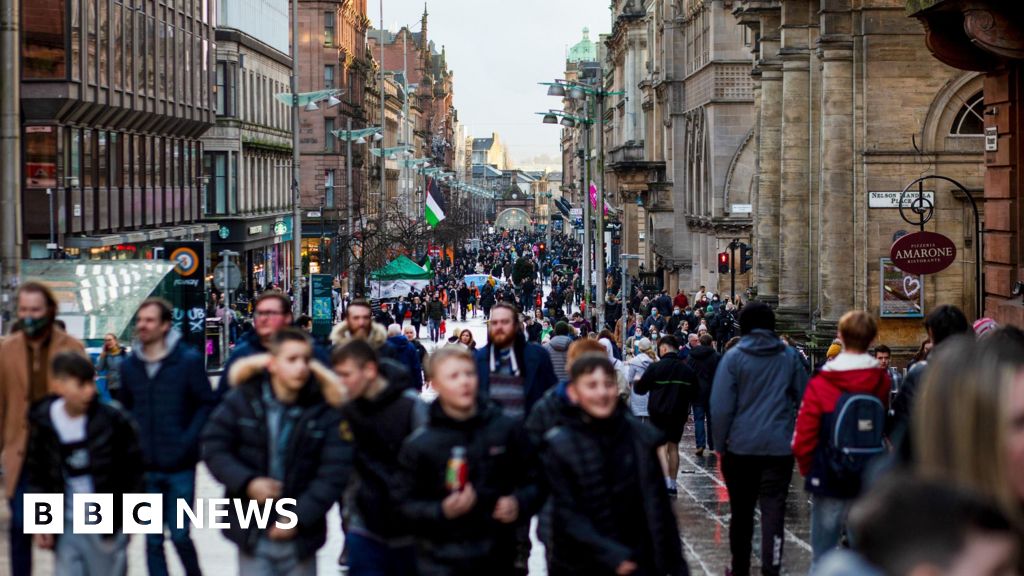Travel
Snow & festive flood warning for Scotland as miserable weather forecast revealed

SCOTLAND is on festive flood alert sparked by melting snow and heavy rain lashing the country.
Weather experts have warned Scots to expect a “very wet, damp and miserable” couple of days, with a significant risk of flooding.
The latest forecasts indicate that some parts of the country should brace to be battered by two weeks worth of rain in the next 24-36 hours.
The Met Office have issued a yellow weather warning, covering parts of the Highlands, Argyll and Bute, Perthshire and the Stirling area.
Jonathon Vautrey, Met Office meteorologist, said that travel disruption and flooding could hit some areas of the country with up to 150mm of rain could fall.
He said: “Over the next 24-36 hours, the rainfall totals really will be building up with widely half a month’s worth of rain falling across parts of the Highlands and even into northern areas of Argyll and Bute.”
He urged people to “take care” as snow melt will add water to rivers.
By Sunday night, four flood warnings and five flood alerts had been issued by the Scottish Environment Protection Agency.
Police have advised people to travel with caution – with the warning remaining in place until midday on Tuesday.
The Met Office warning states: “Rain will become persistent across parts of western Scotland during Sunday, continuing throughout Monday before easing later on Tuesday.”
The forecast says 70-100mm of rain is likely to fall in the next 24-36 hours with the possibility of over 150mm over exposed hills and mountains.
It continues: “Rapid melting of lying snow will also contribute to any potential impacts.”
There may also be some interruption to power supplies and other services.
Some slightly brighter and sunnier spells are expected across Northern Ireland, England and Wales on Monday.
Strong gusts of wind will make it feel chillier than the mild temperatures for the time of year of around 10-11C.
Scots were previously warned to brace for three days of torrential downpours and 55mph gusts starting from yesterday.
The prospect of more flooding comes just one week after Storm Darragh caused chaos across the UK.
It caused a number of festive events in the capital to be axed last night.
Read more on the Scottish Sun
Edinburgh‘s Castle of Light event was cancelled, leaving many locals gutted.
The light show, which plans to project moving images into the walls of the castle, did not go ahead after “adverse weather” sparked health and safety concerns.
Met Office Safety Advice
The Met Office provides several pieces of advice for staying safe during floods. Here are some key points:
Stay Informed:
Keep up to date with the latest weather forecasts and flood warnings through the Met Office website, apps, or local news.
Sign up for flood warnings from the Environment Agency, SEPA (Scottish Environment Protection Agency), or Natural Resources Wales.
Prepare Your Home:
Move valuable items to higher ground if there’s a risk of flooding.
Create a flood plan for your household, including a list of important contacts and emergency supplies.
Use sandbags or flood barriers to protect doorways and low-level vents.
During a Flood:
Avoid walking, cycling, or driving through floodwater. Just 30cm of moving water can knock an adult off their feet, and 60cm can move a car.
If you must walk through floodwater, use a stick to check the ground in front of you.
Keep children and pets away from floodwater.
Turn off gas, electricity, and water supplies if it’s safe to do so.
After a Flood:
Avoid contact with floodwater, as it may be contaminated with sewage or chemicals.
Do not use electrical appliances that have been in contact with water until they have been checked by a qualified technician.
Clean and disinfect your property thoroughly once the water has receded.
Emergency Contacts:
Know the emergency contact numbers for your local council and utility companies.
In case of immediate danger, call emergency services on 999.
For more detailed advice, you can visit the Met Office website or the relevant authorities such as the Environment Agency or SEPA.












